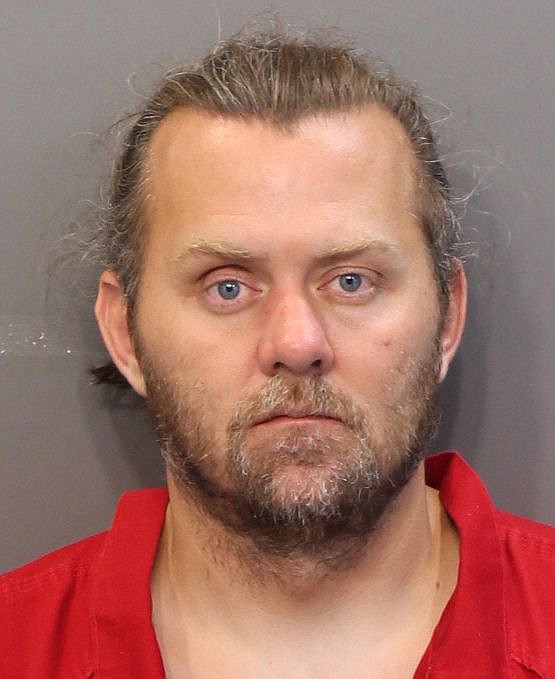Prosecutors believe a Michigan man has information on a 17-year-old slaying in East Ridge and want to preserve his testimony in case his brain cancer kills him before trial.
But the accused killer's defense attorneys are questioning the man's memory and his relevance. And a judge said Monday that prosecutors need to present a little more medical information before he can authorize an exception to the rules.
Jason Kirk Sanford, 44, is charged with one count of first-degree murder in the slaying of his ex-girlfriend, Sarah Perry, who's strangled body was found in a garbage can in June 2000. After fleeing to Michigan in the days afterward, Sanford had conversations with Michel Penetrics about the crime, prosecutors say. Now that Sanford's been indicted and awaiting trial in Hamilton County, prosecutors want to use Penetrics' testimony to help put him behind bars for life.
But there are two issues.
There's no trial date set in Sanford's case, and prosecutors recently learned Penetrics underwent surgery for brain cancer and chemotherapy. With a serious disease threatening his life and no resolution in sight, prosecutors want to depose Penetrics to preserve any potentially valuable testimony.
"If this was a defense witness who was material to the defense, surely we wouldn't want to deny a defendant the right to put on that defense for himself," Hamilton County District Attorney General Neal Pinkston said. "I think the same would apply for the prosecution in this case."
Judge Tom Greenholtz agreed but said he needs a little more information on Penetrics' medical state and testimony before he makes a ruling. He set the next court hearing for Oct. 30.
A deposition is when attorneys question someone under oath before trial, usually without a judge present. Because it would be a special instance here, prosecutors need to prove three general exceptions. First, will the witness be unavailable? Second, is the witness's testimony necessary to the case? And third, would there be a failure of justice if the witness doesn't testify?
Johnny Houston, one of Sanford's defense attorneys, questioned the relevance of Sanford's conversations in 2000.
"It's essentially a third-hand conversation between a local police office [in Michigan] and Mr. Penetrics' mother," Houston said. "So I think there needs to be some showing of medical proof as to what his his status is, as to what the doctors predict."
Houston also questioned Penetrics' ability to remember given his chemotherapy.
"He'd had a tumor removed from his brain," he said. "I don't know to what extent that will affect his testimony."
Pinkston suggested the defense might frame Penetrics as the "possible alternate suspect" during Monday's hearing. Penetrics spoke to law enforcement in 2000 and 2016, Pinkston said.
Houston never addressed that point Monday. But court records show he's trying to learn what proof the state intends to use at trial. Defendants often try to suppress certain pieces of evidence once they learn what exactly is being used against them.
Penetrics isn't the state's only source of evidence. Brian Ashburn, a detective with the Hamilton County Sheriff's Office, told the Times Free Press in August 2016 that authorities had a witness who placed Sanford in town during the killing, documentation of him leaving town afterward and statements from Perry to police that Sanford was looking for her and trying to kill her.
Perry was last seen alive June 14, 2000, before two teenagers discovered her body the next afternoon while playing in Spring Creek, prosecutors said. Sanford was indicted in August 2016 after officers were able to clarify some witness statements and catch Sanford on his inconsistencies in earlier interviews in 2000, Ashburn said.
The district attorney's office could not comment Monday on whether prosecutors have DNA swabs or other forensic evidence against Sanford. But they don't always need it.
Prosecutors didn't have DNA evidence when they prosecuted a former bowling alley owner in 2016 for killing his co-defendant in a drug conspiracy case nearly 30 years earlier. They used witnesses who came forward for the first time and corroborated the state's initial and follow-up interviews about Billy Hawk. After a week-long trial, jurors convicted Hawk of first-degree murder.
Contact staff writer Zack Peterson at zpeterson@timesfreepress.com or 423-757-6347. Follow him on Twitter @zackpeterson918.
